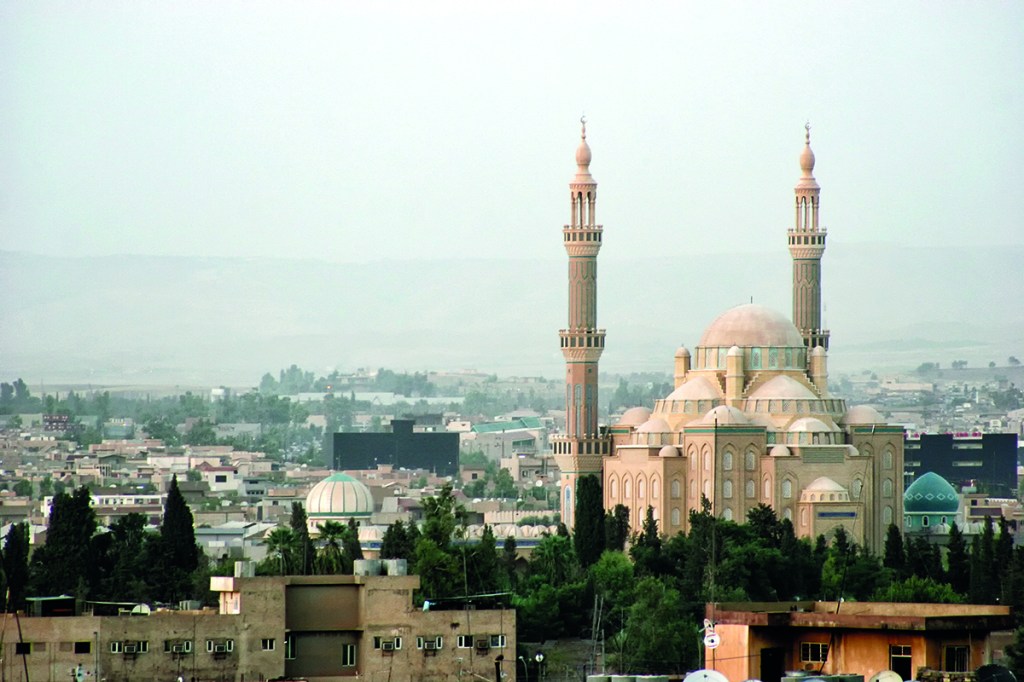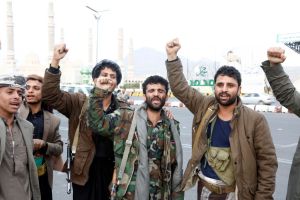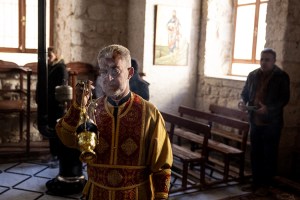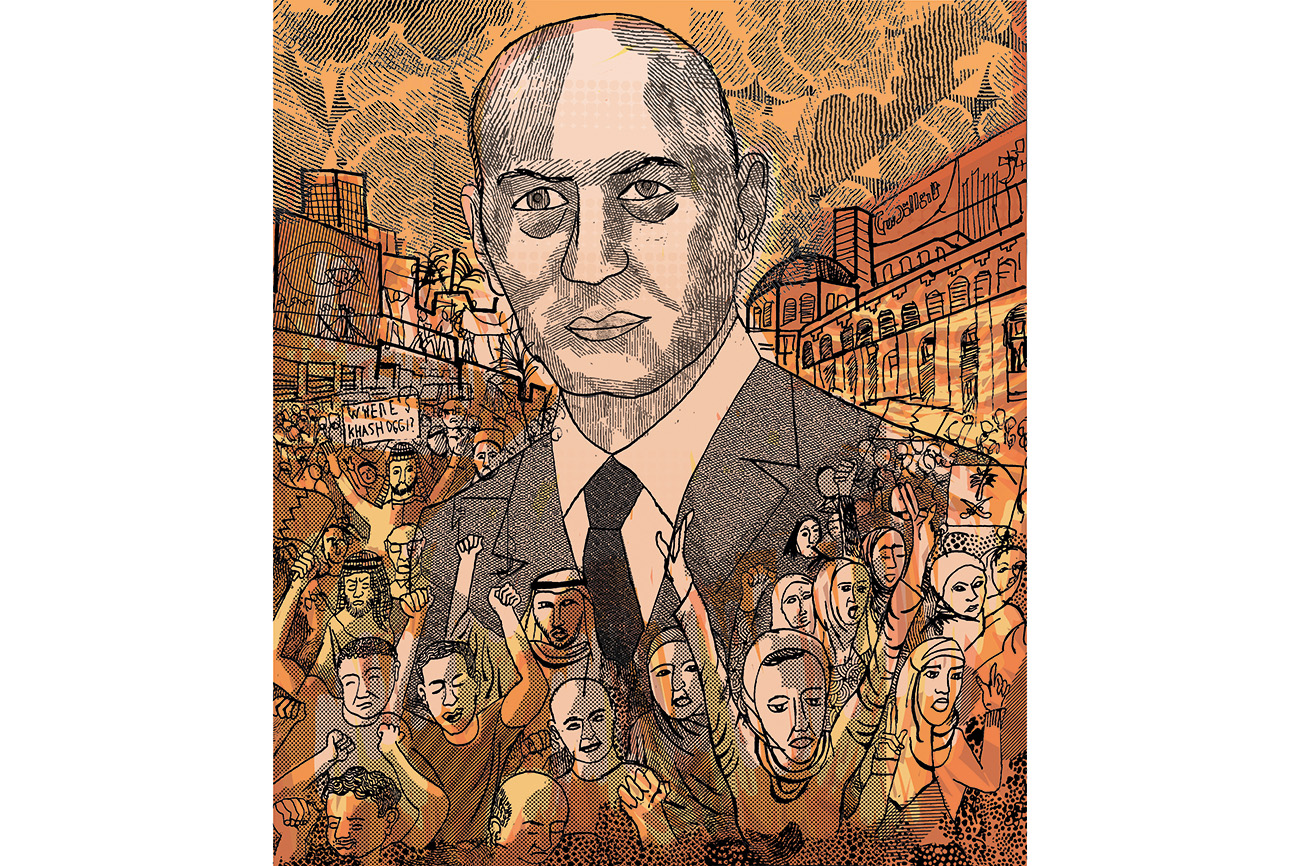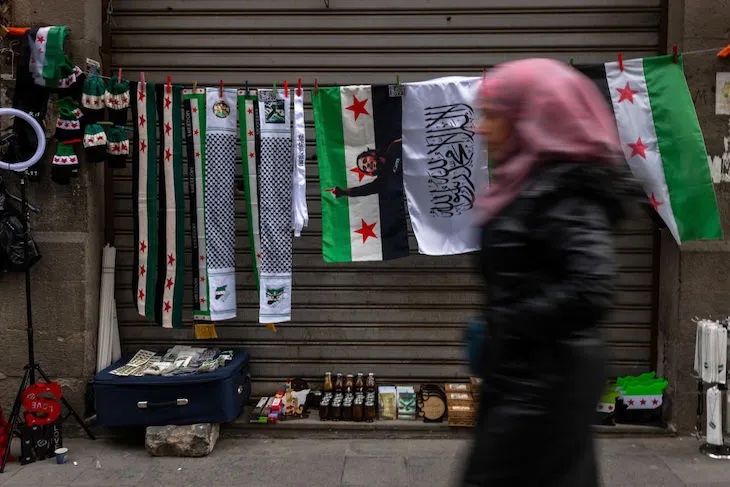The land around Erbil, the capital city of the Kurdistan region of northern Iraq, is mostly beige, flat and seemingly endless. The mountain has seen a lot of action. The terror group ISIS remains dug in around it and the Kurdish peshmerga, with whom I recently spent time, continue to battle against them.
Iraq. Two syllables, almost two decades of conflict. When people think of Iraq they think of several things: the disastrous 2003 war, oil (like all Arab countries in the popular imagination), ISIS and, if they’re a bit older, the mustachioed features of Saddam Hussein that stood, in the early years of this century, for the type of dictator painted as the West’s greatest threat. I think of all those things, too. But they’re leavened by something else: family. More than two millennia of Jewish history stalks the land that now encompasses the modern state of Iraq. My great-grandfather Reuben was a member of parliament for Basra under the British mandate in the 1920s. Another ancestor, Abdallah Somekh, helped codify the kosher laws for Baghdadi Jews throughout India and the Far East. They contributed. That’s all gone now.
I thought about all this on my way back from the mountain as I saw smoke rising from the oilfields of Kirkuk. I thought of Haskel Sassoon Lawy, my great-uncle by marriage, whose tallit (prayer shawl) I now have. Haskel, family lore holds, graduated top of his year at Al-Beit University of Iraq Royal College of Medicine but, being Jewish, was denied a position in a major city. Instead, he was sent to Kirkuk, today an oil powerhouse, but then provincial.
My cousin Rosie has a photo of Haskel sitting with the rabbi of Kirkuk. It’s the 1940s. Haskel told her that the Iraqi Arabs were waiting for the German general Rommel to win the battle for the Middle East; they had, he said, a list of people, Haskel included, to hand over to the Germans when they turned up. Rommel lost and my family was spared — for the moment. In 1941, Ida, my first cousin once removed, was sheltered by Muslim neighbors as the local population rampaged through Jewish Baghdad during a pogrom known as the Farhud. Just seven years later, two-millennia of history were undone overnight. After the foundation of the state of Israel, all of them were eventually forced to flee.
History is a funny thing in Iraq. The story of the Jews begins there with Abraham, who leaves Ur of the Chaldees and kickstarts our history. But Iraq itself is ahistorical. An elderly Baghdadi family friend once leaned across the family dinner table toward me. “Daoud,” he said, “there is no such thing as an Iraqi: there are only Sunnis, Shia and Kurds.”
“And once Jews,” I felt like saying, “before pretty much all three of them.” But I got his point. The majority of Middle Easterners may not be Christian, but they have a deep sense of original sin. In Iraq, the serpent that invaded this Garden of Eden is clear: the 1916 Sykes-Picot Agreement that essentially divided the Ottoman provinces outside of the Arabian Peninsula into French and British spheres of influence. It was under Sykes-Picot that the British and French carved modern Iraq from three former provinces of the Ottoman empire: Baghdad, Basra and Mosul. Several other states sprang from the Europeans’ imagination, not least the future Lebanon, Israel and Jordan, the latter created by Churchill, as he boasted, “at the stroke of a pen one Sunday afternoon,” in an early attempt to adjudicate Jewish and Arab claims to the Palestine Mandate.
Sikes-Picot is widely despised in Iraq by all sides. When ISIS rampaged across Iraq and Syria in 2014, they pointedly bulldozed the border between the two countries that they said the treaty had artificially created. It was a perfect example of the group’s exceptional PR operation. Even the majority who hate them would agree with that.
Iraq recently held its fourth parliamentary elections since the 2003 coalition invasion. Parties break down along sectarian lines, politics is fractured, agreement is rare. It will take months of bickering and horse trading for the parties to agree to a new government following yet another election with no outright winner. And yet, it gives the Iraqi people more of a say than they had under Saddam. The Iraq War was an unequivocal disaster, responsible not only for so many deaths but also for the rise of ISIS. But seeing Iraqis proudly holding up their index fingers, covered in the purple dye that means they have voted, is to believe that some change may be possible.
Thirty years ago, no one thought a vote could count in Iraq. Maybe in another thirty, the Jews might be able to return to Iraq where they had lived for so long and contributed so much. If that were to happen, not only would Iraq benefit, but so would the wider Middle East.
This article was originally published in The Spectator’s February 2022 World edition.



